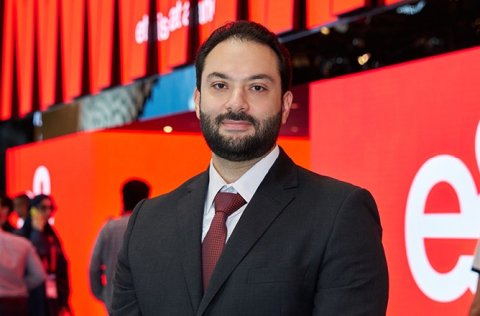Eslam Kandil, MEA Telco Account Director at Intel, discusses how the technology company’s new collaboration with e& enterprise is designed to empower enterprises in the Middle East to deploy GenAI faster, cheaper and within regional rules, during a conversation with CNME Editor Mark Forker.

How do you see your organisation contributing to the region’s bold and ambitious national digital economy agendas, and where do you believe private–public collaboration will be most critical in achieving these ambitions?
National AI strategies in MEA are ambitious, but the region faces the same bottlenecks as others around the world: cost, compliance and time.
At Intel, we believe we can play an important role in making AI more practical with smaller, task-specific models that run fast and affordably on Intel’s latest Xeon Processors, available to a wide range of industries through AWS Marketplace. Partnering with e& enterprise gives us local delivery and governance know-how, so a healthcare provider or bank can move from pilot to production in weeks, not quarters.
Public–private collaboration is critical in these regulated sectors. We bring the tech, and we leverage partners like e& enterprise to ensure delivery meets data-residency and audit requirements.
As emerging technologies such as Gen AI and Agentic AI continue to reshape industries, how do you strike the right balance between rapid adoption for competitive advantage and ensuring resilience, security, and regulatory alignment?
That balance is exactly what our SLM-in-a-Box solution solves. By lowering deployment and operating costs thanks to pre-deployed Small Language Models (SLMs) and cloud-native scaling as demand grows, we’re enabling enterprises that may be struggling to operationalise AI to scale pilots into full production fast, with the assurance that comes from built-in data and security compliance.
The reality is, most businesses don’t need to leverage Large Language Models (LLMs) that drive up spend and complicate compliance. Narrowing scope to small models that deliver faster time-to-value for tasks such as summarisation, classification, retrieval-augmented generation and domain copilots means businesses can achieve immediate, measurable results. That could be improving customer service, automating content workflows, or supporting smarter decisions.
With SLM-in-a-Box, teams don’t need to trade innovation for risk. The product bakes in the controls so they can scale with confidence rather than waiting for possible future outcomes.
What role do you believe technology leadership should play in redefining business models and creating new value ecosystems across the Middle East?
Tech leaders need to turn AI hype into operational outcomes so more businesses can reap the benefits of the AI revolution. The possibilities are especially exciting for organisations in critical infrastructure sectors like government, financial services, healthcare, energy and telecommunications. Imagine the value that could be unlocked if everyday services got faster and cheaper for customers. Picture banking assistants that verify documents in minutes, enabling more seamless onboarding and reducing fraud. Clinician tools that surface answers at the bedside, cutting admin time and claims costs. Energy field tools that predict failures before they happen, avoiding downtime.
Greater AI adoption means lower cost-per-task, faster time-to-resolution, and churn reduction — opening up savings that can be reinvested into new services, new jobs and the next wave of expansion in the Middle East.
Looking ahead, which transformative technologies do you believe will define the region’s global standing over the next decade, and how are you preparing your organisation to lead in that shift?
There’s no doubt that AI will reshape how governments, businesses and citizens operate over the next decade — we’re already seeing the early impacts now. The Middle East is well primed to become a global powerhouse in the AI industry with its young, tech-literate population, rapidly expanding digital infrastructure and speed to market.
At Intel, we want to help power that shift by investing in local people, partners and platforms. We’re growing local solution teams and hands-on enablement, expanding our ecosystem with e& enterprise and other partners, and developing region-specific products aligned to local policy. Enabling organisations to deploy AI faster, cheaper, and compliantly will power business growth and cement the region’s position as a global tech hub.





